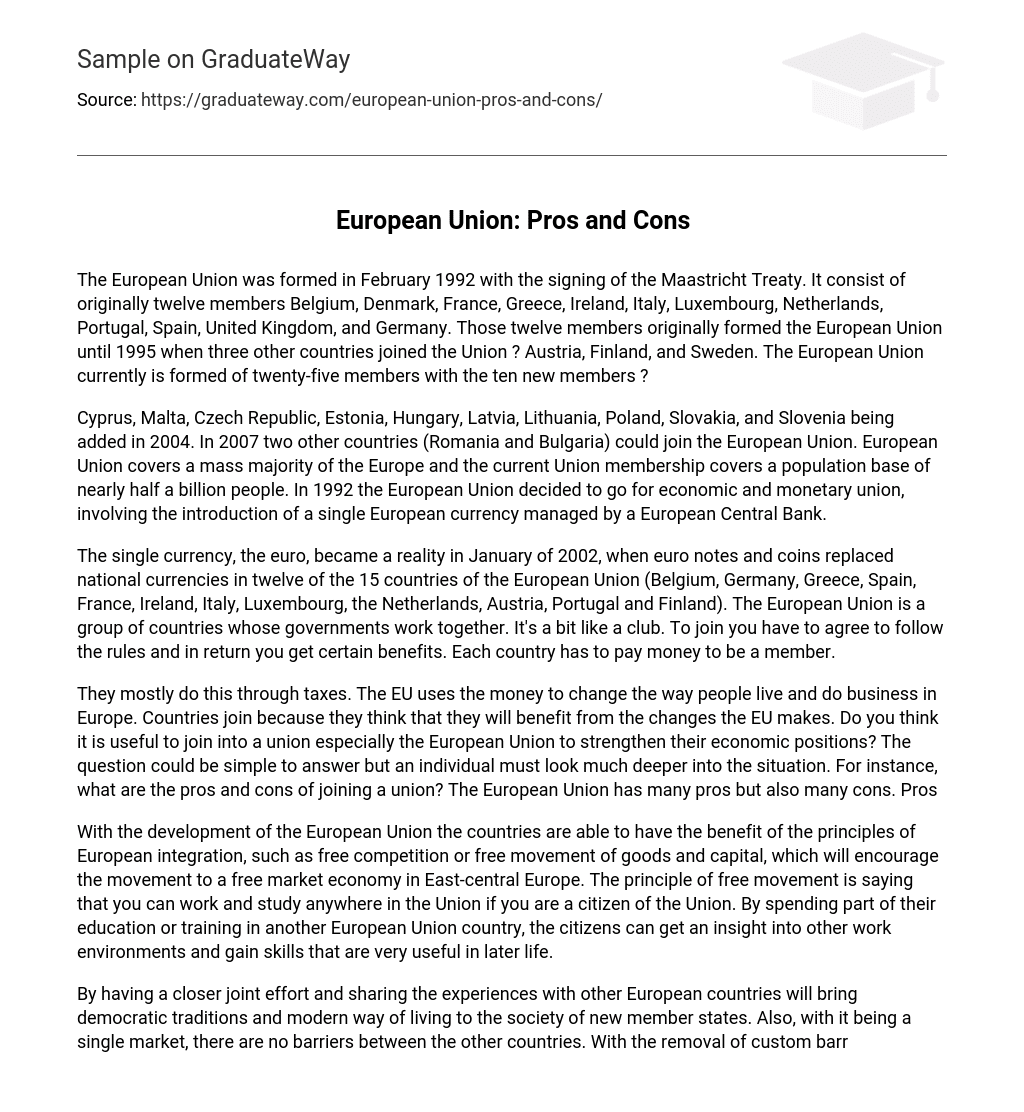The European Union, which was formed by signing the Maastricht Treaty in February 1992, initially included twelve nations: Belgium, Denmark, France, Greece, Ireland, Italy, Luxembourg, Netherlands, Portugal, Spain United Kingdom and Germany. Through subsequent expansions in 1995 with Austria, Finland and Sweden joining the Union as members thirteen to fifteen respectively. At present, the European Union consists of twenty-five member countries including ten recently joined nations.
In 2004, Cyprus, Malta, Czech Republic, Estonia, Hungary, Latvia, Lithuania, Poland, Slovakia and Slovenia became members of the European Union. In 2007, Romania and Bulgaria were also offered EU membership. As a result,the EU now includes a significant part of Europe and has a population of approximately half a billion people. In 1992,the EU decided to create an economic and monetary union that involved introducing a single European currency managed by the European Central Bank.
The euro, the single currency, was adopted in January 2002 by twelve of the 15 European Union nations: Belgium, Germany, Greece, Spain, France, Ireland, Italy, Luxembourg, the Netherlands Austria Portugal and Finland. The European Union is a collaborative alliance of countries that follow specific rules and regulations for their collective benefits. Membership requires financial contributions from each nation.
In order to bring about changes in the lifestyles and business practices of people in Europe, one approach they employ is utilizing taxes. Numerous countries opt to join the European Union (EU) with the anticipation that these changes will be advantageous for them. However, determining whether joining a union, especially the EU, is beneficial for economic improvement may seem uncomplicated but requires a thorough analysis. It is crucial to consider both the advantages and disadvantages of becoming part of a union. The EU offers both benefits and drawbacks.
The establishment of the European Union has provided East-central European countries with the opportunity to benefit from European integration principles. These principles include free competition and unrestricted movement of goods and capital, which are beneficial for transitioning to a market economy. One important principle is the freedom of movement, which allows citizens within the Union to freely work and study in any member country. This enables individuals to participate in education or training programs in other EU nations, gaining valuable experience in diverse work settings and acquiring skills that will be advantageous for their future.
By collaborating more closely and exchanging experiences with other European countries, new member states can bring democratic traditions and modern living to their societies. Additionally, as a single market, there are no barriers between countries, allowing producers to reduce costs and increase exports through the elimination of custom barriers. Moreover, integration into the European Union will bring further benefits.
The costs of EU membership may hinder the progress of faster developing countries, specifically the UK which has a more global economy compared to many member states. For seven out of ten years in the past decade, EU GDP growth has fallen behind that of the USA. In 2010, EU GDP was nearly half that of the US primarily due to EU regulations making business operations more challenging. The principle followed by the EU is supranationalism, requiring member states to agree on transferring sovereignty to the EU through treaty agreements.
Despite the fact that certain areas such as defence, taxation, or currency should not be handed over to a supranational organization due to the potential weakening of nation states, regrettably many have already been transferred. Unfortunately, the European Union (EU) is not as effective at managing different policy domains as individual countries have proven to be. The conflicts arising within the eurozone illustrate the difficulties that arise from relinquishing sovereignty. This frequently leads to compromises by the EU that fail to satisfy anyone because it consistently aims to appease all of its members.





